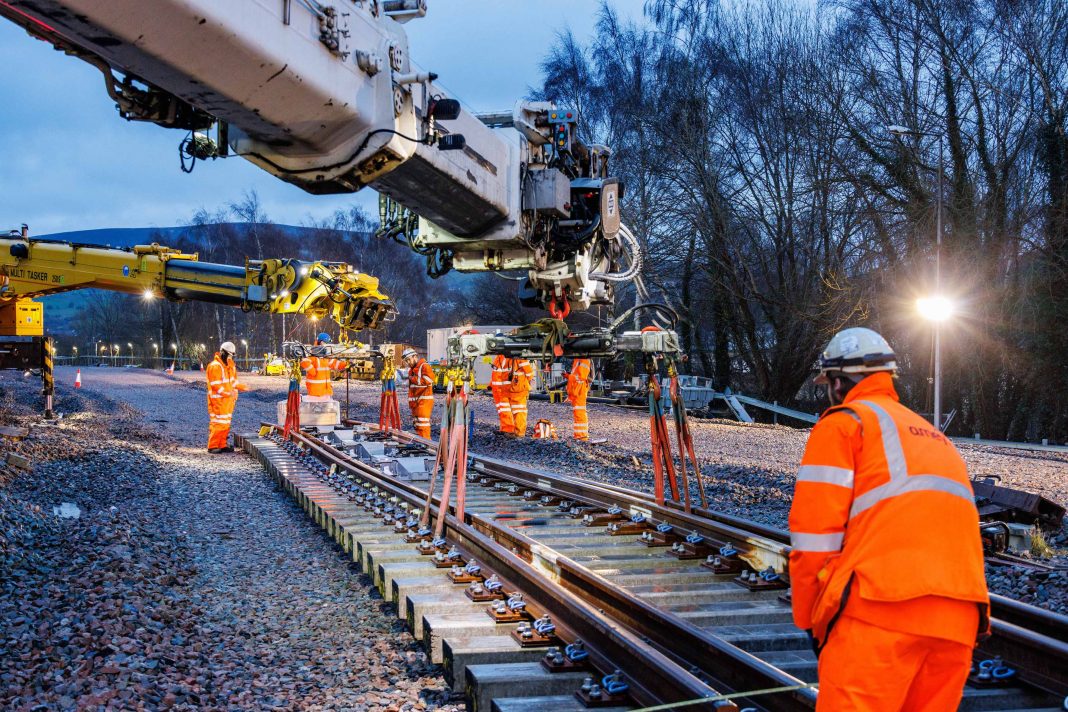The Transpennine Route Upgrade (TRU) has today revealed its strategy to “improve the lives of millions of people in the North” by slashing railway carbon emissions, equivalent to taking 6 million cars off the road for an entire year, creating and safeguarding thousands of jobs for local people and providing tens of thousands of opportunities for new entrants to the industry and young people, and delivering more than £4bn in social value and a further £4bn in wellbeing.
The multi-billion-pound railway programme will deliver major upgrades on the 70-mile route between Manchester and York, transforming journeys across the North, better connecting towns and cities through more frequent, faster, greener trains, running on a better, cleaner and more reliable railway.
As well as delivering benefits for passengers, the programme’s new sustainability strategy titled ‘Our Guiding Compass’ outlines its commitments to delivering environmental benefits, social value and employment opportunities.
Rail Minister Huw Merriman said: “Sustainability is at the heart of the Transpennine Route upgrade – delivering faster and more reliable electrified services in the North in a way that’s also better for our environment.
“I welcome the launch of today’s strategy and am proud to see the transformational benefits of the upgrade coming to life by creating new jobs and opportunities while slashing carbon emissions across the region.”
Anna Humphries, Head of Sustainability and Social Value for the Transpennine Route Upgrade, said: “The Transpennine Route Upgrade’s sustainability strategy is clear in our vision for the North of England. We’re delivering not just a railway that will be faster, cleaner and provide more seats, but we’re putting the sustainability and social value delivery of the programme at the heart of all we do.
“We have a once-in-a-generation opportunity to make a real impact on the lives of those who live in the North of England and ‘Our Guiding Compass’ puts in writing how we intend to do that.”
Rob Warnes, Strategic Development Director at Northern Trains, said: “The Transpennine Route Upgrade will be transformative for our customers, enabling us to run greener, faster trains and slash our carbon emissions.
“The programme is creating jobs here at Northern, as well as in our supply chain and across the North of England, offering our towns and cities a much-needed economic boost.”
Nicola Martin, Head of Sustainability for TransPennine Express, said: “People and the environment are at the heart of Our Guiding Compass. This is so important today, in a world where people are more informed about the pressures on the environment.
“The investments being made through the Transpennine Route Upgrade will bring welcome improvements to our rail network and will attract and retain customers who seek to travel in a low carbon way.”
TRU will deliver a cleaner, greener railway by electrifying the 70-mile rail route between Manchester and York. It will also slash carbon emissions by mitigating negative environmental impacts during construction and enhancing the natural environment surrounding the route.
TRU will create 4,000 new roles during construction with 60% of the workforce are being employed from within 25 miles of the route and 80% within 40 miles. 20% will be from underrepresented groups to create a diverse team to reflect the communities on the Transpennine route.
Using cutting-edge technology, the railway programme has also calculated the impact of its sustainable development activities to £4.28bn in social value and an estimated £4.9bn in wellbeing impact, in addition to the traditional programme economic impact assessments.
This is calculated using the Rail Social Value Tool, which is an online tool developed specifically for the rail industry in the UK, in line with HM Treasury Green Book Principles, to conduct valuations of the social value generated for individuals and society.
It also uses the ‘WELLBY Assessment’, which estimates the impact of the change to wellbeing by calculating the amount of additional income a person would need to receive to then experience the same change in wellbeing.



